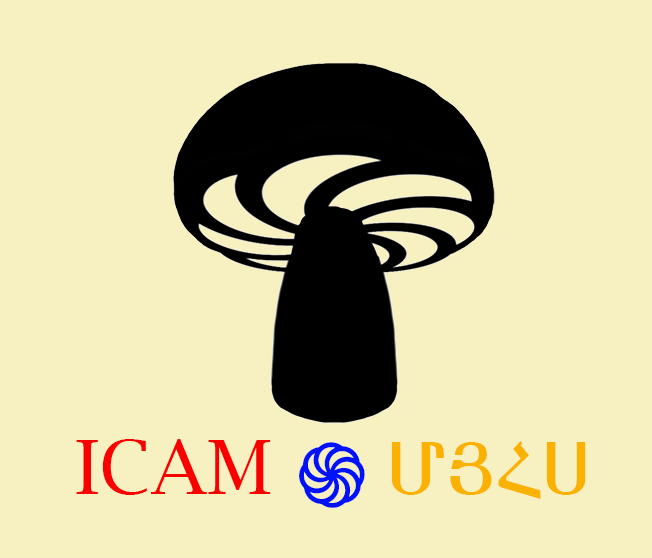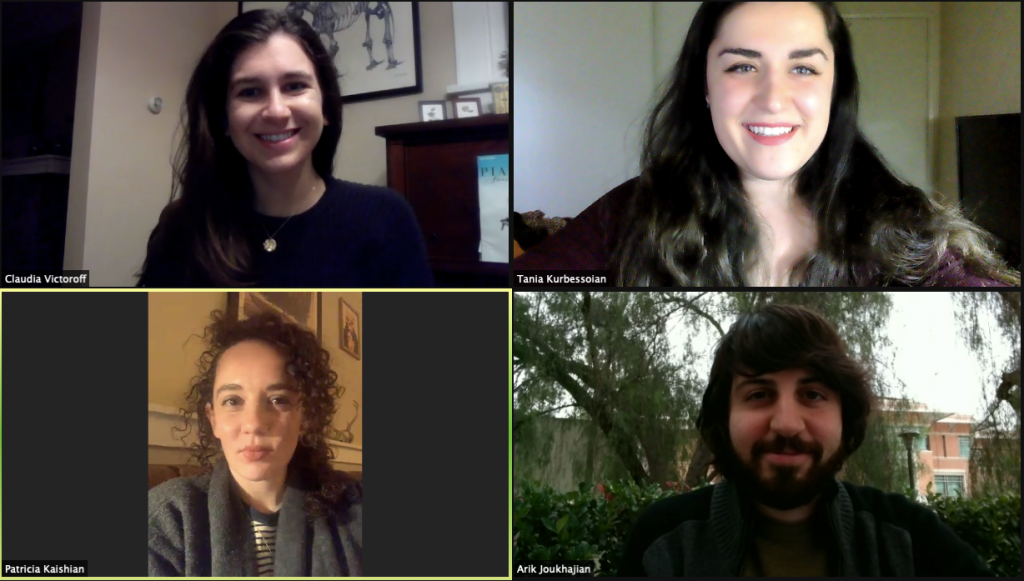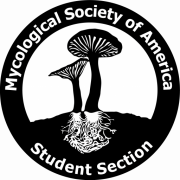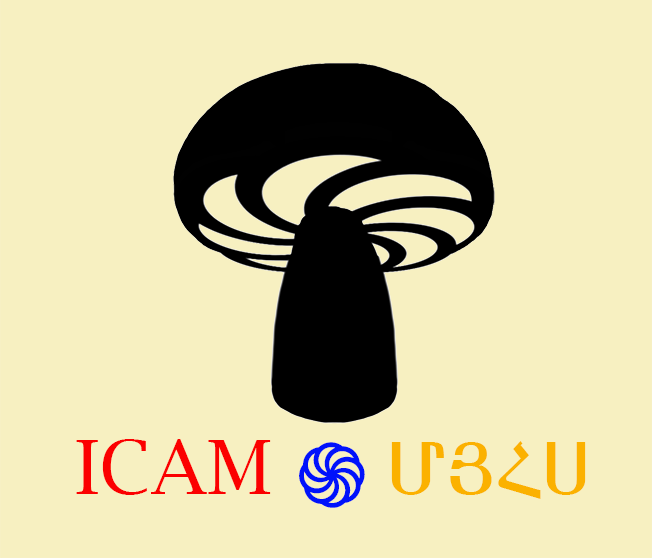International Congress of Armenian Mycologists

ICAM is the International Congress of Armenian Mycologists! They are currently based at: Purdue University, Case Western Reserve University, and University of California, Riverside
Let us know a little bit of your organization!
This group was founded by: Claudia Bashian-Victoroff, Arik Joukhajian, Patricia Kaishian, Tania Kurbessoian
The International Congress of Armenian Mycologists (ICAM) is a network of research scientists of Armenian ethnicity. Our diverse research backgrounds on various aspects of fungal biology are allied in the mission of biological, ecological, and social welfare of all Armenian life forms. As an organization we strive to conduct critical scientific research on the understudied fungal kingdom in the both ancient yet contemporary civilization of Armenia.

What are the goals of ICAM?
Drawing from Armenia’s strong tradition of land stewardship and intimacy with nonhuman life forms, the goal of ICAM is to leverage our passions and training as scientists to simultaneously advance mycological science and Armenian sovereignty. We seek to build science capacity in Armenia by: collaborating with the nation’s already successful scientists through shared grants, co-authorship, and resource allocation; by providing financed scientific mentorship to Armenian youth; and by gathering biological data that can be used in the protection of land and life. Because fungi are understudied worldwide, and Armenia has been home to a low proportion of that research, we aim to describe new species and accrue data for answering critical ecological and evolutionary questions. Seating such research in Armenia will serve to bolster Armenia’s overall impact and contribution to science.
What inspires and motivates ICAM?
Armenia is a predominantly indigenous nation in West Asia whose vibrancy and beauty has withstood the terrors of colonization and genocide for hundreds of years. As Armenians are locked in a struggle of liberation and self-determination against such forces, we believe that human liberation is intimately linked to the liberation of all life, not least of which is fungal. Despite the common assertion to the contrary, science is informed by sociopolitical forces. ICAM recognizes and affirms the positive relationship between indigenous sovereignty and biological diversity in Armenia and beyond, and stands in solidarity with all indigenous social justice efforts around the world.
What type of activities do you organize and participate at?
ICAM is still a newly formed organization, we are still developing our network and programming. We are currently building an international network of ethnically Armenian mycologists. We are planning collaborative research and grant support, and aim to provide bioinformatics tools to help support Armenian research endeavors.
Central to our mission is mentorship of Armenian youth and early career scientists. Our plan is to be involved with the Armenian Youth Connect program, a professional and scientific mentorship program sponsored by the Armenian Relief Society.
How can someone get involved/participate in ICAM?
Social media including twitter: @IC_ArmenianMyco
Email: icarmenian.mycologists@gmail.com
And our website: https://icarmenian-mycologists.github.io
Our group is centered around ethnically Armenian individuals motivated and excited about fungal ecology, taxonomy, biodiversity, lichenology and medical mycology, etc. Feel free to contact us over email or social media to learn more about our regular meetings.
If you are non-Armenian and interested in potential ally-ship and collaboration we encourage you to reach out.
Where can we find more information about ICAM?
Social media including twitter: @IC_ArmenianMyco
Email: icarmenian.mycologists@gmail.com
And our website: https://icarmenian-mycologists.github.io
Is there something else you would like to share with us?
Armenians are an ethnic minority indigenous to the highlands of west Asia and we are survivors of a long history of colonialism, genocide, ethnic cleansing, and racism. This fraught history has left many Armenians disconnected from their ancestral homeland and culturally isolated. There are very few Armenians in general, nevermind in leadership positions in science and academia. The recent and ongoing conflict in the region, which was a continuation of the pan-Turkic settler colonial agenda, left many of us feeling powerless. This group was born out of that struggle.


Leave a Reply